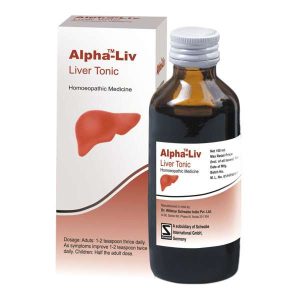
Loss of appetite
-
-18%
 Rated 4.70 out of 5 based on 10 customer ratings(10)
Rated 4.70 out of 5 based on 10 customer ratings(10)₹125.00₹102.50 You Save: ₹22.50 (18%)Add to cart -
-18%
 Rated 5.00 out of 5 based on 1 customer rating(1)
Rated 5.00 out of 5 based on 1 customer rating(1)₹130.00₹106.60 You Save: ₹23.40 (18%)Add to cart -
-18%

Showing all 3 results
Loss of appetite is simply not feeling hungry. There is no desire to eat anything. Loss of appetite can be due to physical or psychological factors. People may feel abdominal pain, nausea, fatigue and weight loss along with decreased appetite. Loss of appetite is often temporary during sickness; people generally get their appetite back on getting well. Loss of appetite is mostly accompanied by ailments of the digestive tract, liver complaints, infections. Some long-term medical illness can also cause anorexia, then it is called cachexia.
Anorexia nervosa: A complete absence of hunger over an extended period of time over an obsession to lose weight. They starve themselves or indulge in strenuous exercise schedules intentionally in order to maintain below-normal body weight.
Loss of Appetite in Children:
Food introduction begins in childhood with different food items. Many different textures and flavors are introduced for growth and to develop taste. Kids love to eat. But surprisingly sometimes children lose their appetite for food for no reason. When that ensues, parents start to worry about how the child will get proper nourishment. It is a very common problem in children between the age of 2-6years.
Psychological anorexia: After the first year of life, the growth rate of children loses down. In the first year, the child puts on about 5-6 kg weight that decreases to 2kg during two to six years of childhood. Child’s brain regulates the hunger drive. Due to slower growth rate, a lesser amount of energy is being consumed by the child’s body. Therefore, the requirement for food is also lesser. So, they tend to have a weaker appetite. This slower growth rate does not affect the activity of the child. A healthy child with a decline in appetite during this time is perfectly normal.
A significant weight loss accompanied by poor appetite and decreased activity is something one should never ignore. Some of the common short term causes for decreased appetite are mentioned below:
1. Illness: When you are sick your hunger drives decreases automatically. Any kind of illness sore throat, fever, diarrhoea, vomiting, stomach-aches, flu or any other sickness causes a decreased appetite. Appetite improves after getting well.
2. Stress: Growing period is a stressful time. Children are very sensitive and do not know how to cop up with stress. Stress may have a negative impact on their growth appetite and sleep patterns.
- There is academic pressure to prove yourself better and compete with other
- children of the same age group.
- The impractical expectation of parents.
- Childhood bullying
- Family stress: Introduction of a younger sibling in their life, a pet, or death of someone in the family can be a very uneasy time for a growing child.
3. Anorexia nervosa: It is an eating disorder develops during growing age. A psychological aversion to food develops in a desire to look like someone they admire. To get the same physique as a screen idol he or she starts avoiding food and exercising more than normal with a drastic loss in weight.
4. Depression: Depression is generally misunderstood by parents as sadness. Sadness is for a short time and goes away with the passing time. But depression does not. The child starts showing lack of interest in all the activities that he or she may previously enjoy. Eating habits and sleeping patterns are disturbed with decreased enthusiasm, along with misery on child’s face.
5. Anaemia: Anaemic children tend to look weaker, sluggish and fussy. Anaemia is an important reason for the decline in hunger drives in a growing child. It not only hampers the growth of the child but also affects academic performance. Management of anaemia should be done as soon as detected.
6. Constipation: A bloated abdomen, flatulence can cause no to any food. Irritable bowel syndrome is the leading cause of constipation. There is no need to worry, simple dietary management can prevent constipation.
7. Worm infestation: A parasite living in the tummy is associated with loss in appetite along with bleeding stools, vomiting, bloating, dysentery.
8. Snacking between meals: A habit of snacking between meals upsets your hunger
9. Fluids and juices: Liquid intake before meals makes your stomach feel full and bounds you to take a low-calorie diet. Limit fluid intake before and during meals.
10. Distractions: Watching television while eating is a very common habit. Either you end up eating a lot or you eat very less. The brain has no choice and cannot focus on the food you are eating.
11. Sedentary lifestyle: No exercises or decreased physical activity affects appetite and nutrient balance in your body.
12. Alcohol abuse
Gastro-intestinal and Liver diseases in relation to loss of appetite:
The normal process of digestion includes the role of the digestive tract and liver. Any gastrointestinal or liver disease hampers the normal process of digestion and causes you to lose your appetite and weight reduction. A majority of people suffering from liver disease tend to follow a low-calorie diet. Impaired expansion of abdomen in ascites leads to inadequate food intake due to a feeling of fullness even after consuming a small amount of food.
TNF-a (tumour necrosis factor-a), a cytokinin, has been hypothesized as a major cause of decreased appetite and lower nutrient intake. The primary role of TNF-a is to regulate the body’s immune system and tells the rest of the body cells what to do. Studies have shown its relation in control of normal feeding and energy balance.
Other medical conditions related to anorexia are:
Asthma, COPD, Diabetes, High calcium levels, HIV and AIDS, Hypothyroidism, Heart failure, Stomach and colon cancer, Crohn’s disease, Addison’s disease
Alpha-Liv: Indications are loss of appetite, with or without hepatic complaints. It is manufactured for digestive tract disorders, jaundice, fatty liver, alcohol abuse, problems of the gallbladder. It is a liver tonic helps in recovering the normal liver functioning. It relieves nausea, vomiting, indigestion, and loss of appetite because of the liver and biliary disorders. It improves general health by cleaning and detoxifying the body by regulating the normal function of the stomach and liver. Alpha-Liv helps in regulating normal bowel movements and prevents constipation.
Constituents: Alpha-Liv syrup is composed of mother tinctures and lower potencies of following homeopathic medicines:
Carduus Marianus, Chelidonium Majus, Andrographis Paniculata, Hydrastis Canadensis, Podophyllum Peltatum, Ipecacuanha, Acidum Citricum.
Prevention:
- Small and frequent portions of meals
- Changing the menu every day and make it look more appealing and fun
- Do not force feed
- No television while eating
- Beverages after meals
- Feed healthy: Add fruits and green leafy vegetables
- Taste enhancers and appetizers: Peanuts, yogurts, green tea, avocados, chicken and pumpkin seeds
- Avoid drinking before meals
Blog Post


Effects of Diabetes, Smoking, and Other Factors on Sexual Health


Plant-based Protein vs. Animal Protein: Which is Better for Your Health?






























